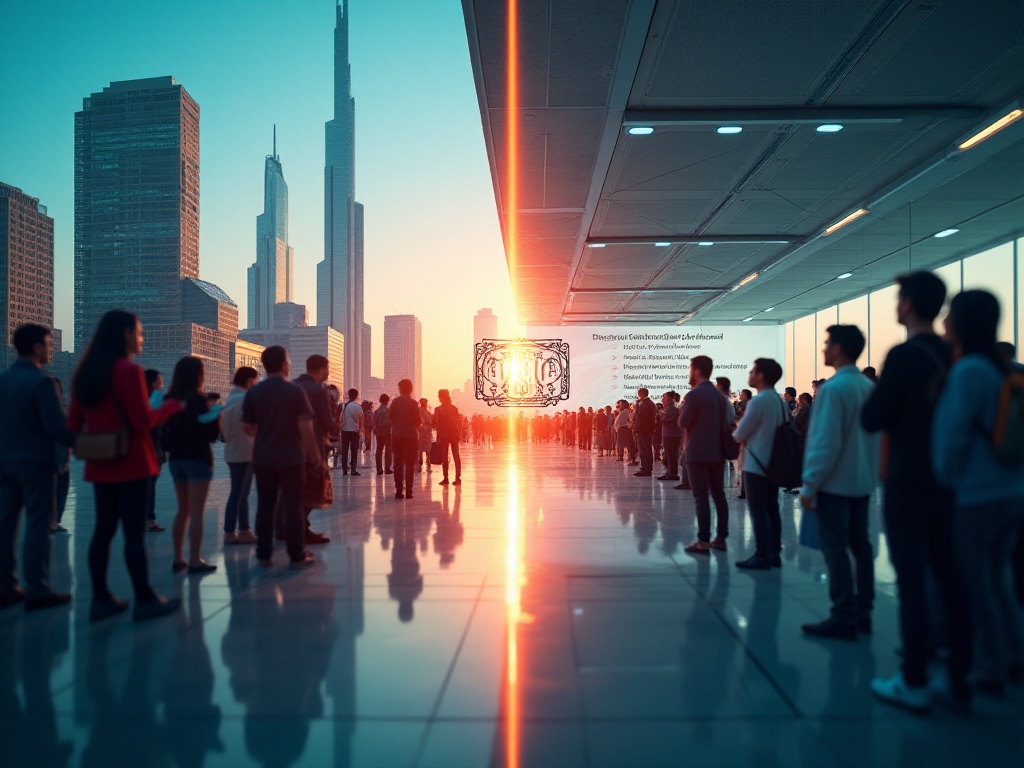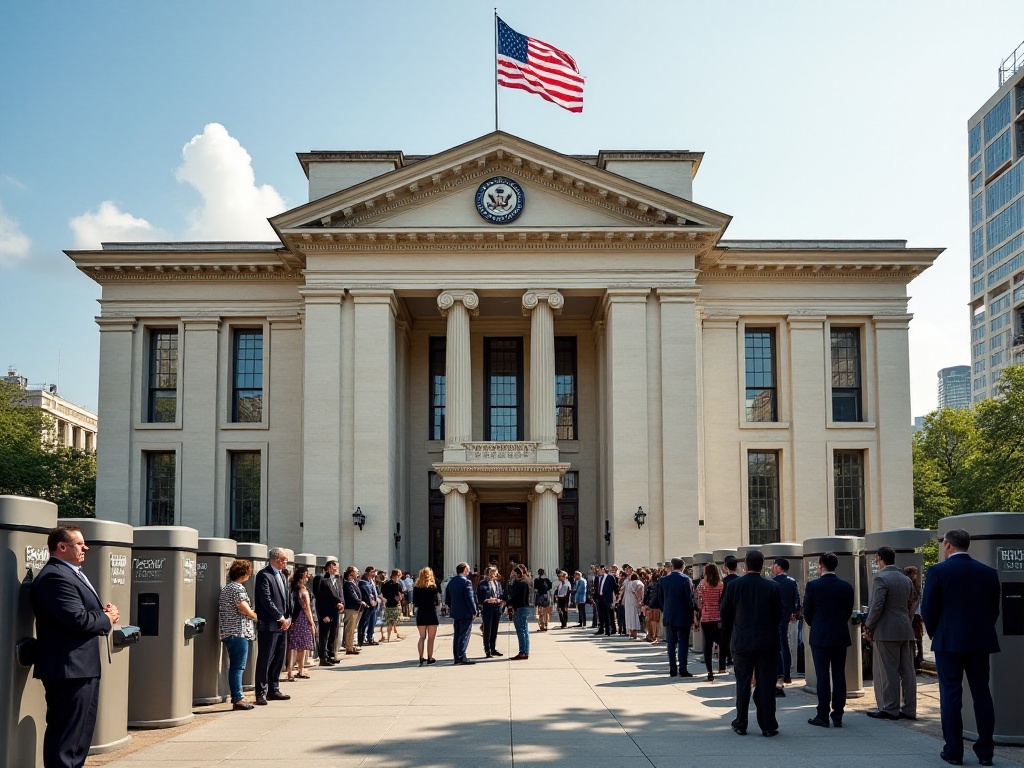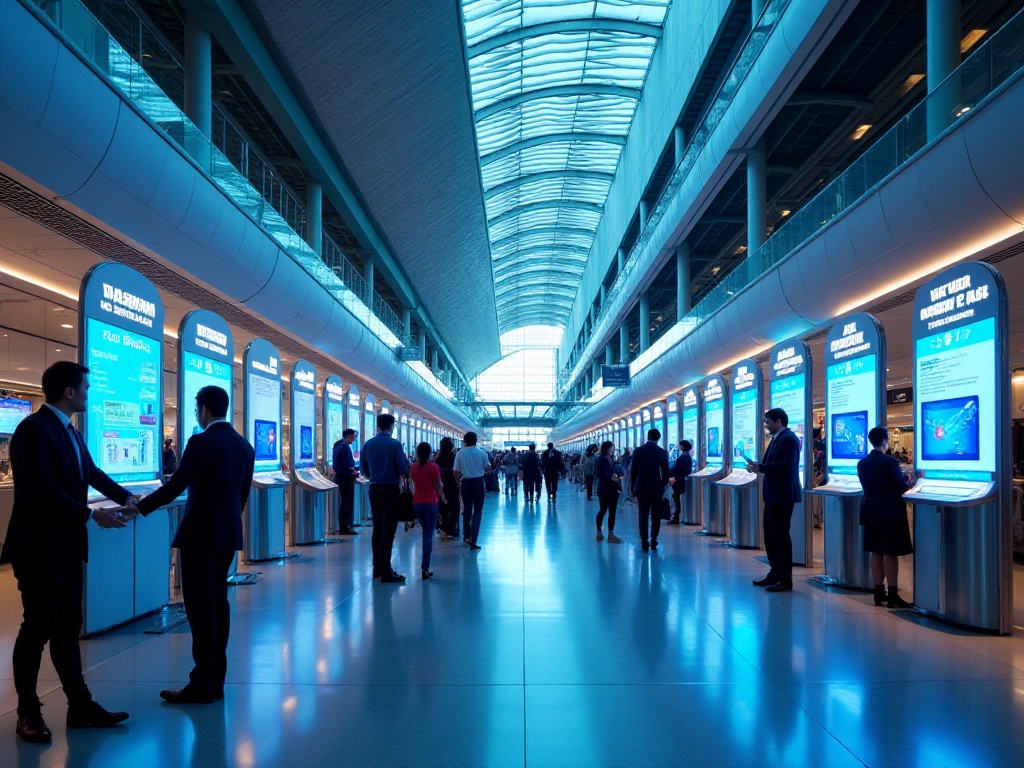Hello everyone! I'm a regular student who has studied in the US for two years, and I've gained extensive experience, especially in helping friends apply for US visas. I remember my first visa application - I was completely lost and anxious. Looking back now, getting a US visa isn't as difficult as we imagine; the key is finding the right approach.
I want to share my experiences and lessons learned. Honestly, seeing many friends take wrong turns during their application process has been quite emotional for me. If they had access to a detailed guide like this earlier, perhaps they wouldn't have struggled so much. Today, I'm sharing all my experience without reservation.
Let's first discuss what a visa actually is. Many people might think it's just a stamp, but its significance goes much deeper. A visa is like a special pass from a country, representing not just permission to enter but also recognition of your personal credibility.
The US visa system is arguably one of the world's most complex and strict. There are dozens of visa types, each with specific application requirements and purposes. For regular tourists, we most commonly deal with B-type visas. These include B-1 for business and B-2 for tourism. Usually, consulates issue a combined B-1/B-2 visa, covering both business and tourism needs.
Regarding visa validity, there's an important distinction to make. Many people confuse visa validity with allowed stay duration. For example, you might get a ten-year visa, but this doesn't mean you can stay in the US for ten years. The visa validity only indicates how long you can use it to enter the US multiple times, while your actual stay duration depends on what immigration officers grant you at entry.

Preparation is a major undertaking. I recommend starting two to three months in advance, as some materials take time to prepare.
First is your passport, the most basic requirement. The US requires passports to be valid for at least six months beyond your stay. If your passport is expiring soon, get a new one first to avoid last-minute rush.
Next is the DS-160 form, which is like your personal resume, containing basic information, educational background, work experience, travel plans, etc. Fill this form carefully, as any inconsistencies could lead to visa denial.
Then there's the visa fee payment. There are several payment methods now, both online and in-bank. I recommend online payment for convenience and speed. Remember to save your receipt; you'll need it when scheduling your interview.
The interview appointment confirmation is also essential. The appointment system can get busy, especially during peak travel seasons like summer. Try to monitor the appointment system a few weeks ahead and book as soon as suitable times become available.
Besides these basic materials, I recommend preparing supporting documents. For students, bring enrollment verification; for working professionals, employment certificates and bank statements; for married individuals, marriage certificates, etc. While not mandatory, these might prove useful in special situations.
Regarding bank statements, a special note: don't assume more money is better. Visa officers care more about reasonable fund sources and normal transaction patterns. A sudden large deposit might raise suspicions.
The DS-160 form is perhaps the most time-consuming and error-prone part of the application process. With over 160 questions covering various aspects, it's comprehensive. My first attempt took three tries before successful submission due to misunderstanding certain questions.
First, let's talk about timing. Though there are many questions, it typically takes 1-2 hours with proper preparation. However, I suggest setting aside half a day to account for potential research needs or family information verification.
During the process, saving frequently is crucial. The system automatically logs out after 30 minutes of inactivity, losing unsaved content. I learned this the hard way on my first attempt. The lesson: save after completing each page to minimize potential losses.
For specific questions, several points need special attention. For social media accounts, many people carelessly fill in information to save time, which is very risky. Visa officers might verify this information, and false information can have serious consequences.
Regarding travel plans, some people write extremely detailed itineraries, planning each day. This isn't necessary - a general plan suffices. Travel plans often change, and overly detailed itineraries might seem unrealistic.
Work information is also crucial. Some people exaggerate their positions to show higher income. This is inadvisable as visa officers are experienced and can easily spot false information. Honest representation is always the best strategy.

The interview is the most nerve-wracking part of the application process, but with proper preparation, there's no need for excessive anxiety. I remember a girl in front of me was so nervous she held her passport upside down several times. Remember, visa officers are regular people who prefer seeing the natural, authentic you.
Preparation for interview day must be thorough. First, timing is crucial - arrive at least 30 minutes early at the consulate. Security checks take time, and being late might affect your appointment. Also, carefully note prohibited items - phones, electronic devices, and food aren't allowed inside.
Regarding attire, some people overdress as if attending a wedding. Clean and presentable clothing is sufficient; being too formal might seem unnatural. I wore a shirt with casual pants, striking a balance between casual and formal.
Interview questions typically revolve around core points. Common questions include travel purpose, planned duration of stay, and whether you have relatives in the US. These were the questions I faced, and answers should be concise without irrelevant details.
For instance, when asked "Why do you want to visit the US," a simple "I want to travel and especially see the Grand Canyon" suffices - no need for complexity. When asked about planned stay duration, be honest, regardless of how short it might be.
The question of returning home is particularly important to visa officers. They want to ensure you won't overstay illegally. Clearly explaining your work, study, or family situation in your home country can significantly increase visa approval chances.

Having helped many people apply for visas, I've seen numerous common pitfalls. Here's a summary of the most frequent ones to help you avoid them.
The first pitfall is providing false information on the DS-160 form. Some think embellishing information is harmless, but this is a major mistake. Visa officers are experienced and can easily spot authenticity. Modern information verification systems are advanced, allowing cross-checking of many details. Discovered false information not only leads to current visa denial but affects future applications.
The second pitfall is over-preparing materials. Some bring thick stacks of documents, then struggle to find important ones during the interview. Visa officers rarely examine these materials in detail, focusing more on answer authenticity and reasonability. Organize materials by category, keeping essential documents easily accessible.
The third pitfall is overacting during the interview. Some try to appear overly enthusiastic, ending up unnatural. Others get too nervous and can't answer simple questions. Remember, staying natural is best. You're applying for tourism, not doing anything suspicious, so there's no need for excessive anxiety.
The fourth pitfall is blindly trusting agencies. While some agencies are professional, others might give inappropriate advice for profit, like suggesting fake income or work experience. These practices are very risky with serious consequences if discovered.
The fifth pitfall is poor time management. Some start applying just before their planned departure, resulting in rushed preparation. Start preparing at least three months ahead to handle unexpected situations calmly.

Through years of experience, I've identified three key words: honesty, preparation, and confidence. These seem simple but aren't easy to achieve.
Honesty is the fundamental principle. Maintain truthful information in both form filling and interviews. I've seen many rejections due to false information. Some might think minor embellishments are acceptable, but visa officers are experienced in judging information authenticity.
Preparation should be thorough but not excessive. As mentioned earlier, prepare sufficient materials but avoid unnecessary ones. The same applies to interviews - prepare for basic questions without getting lost in details. Balance is key - neither under-prepared nor over-prepared.
Confidence is crucial. Many get extremely nervous during interviews, which is unnecessary. You're legally applying for a visa; with honest materials and sincere answers, there's nothing to worry about. Maintain a calm attitude and believe in yourself to present your best during the interview.
Time management throughout the application process is important. Create a detailed schedule covering each step. From passport validity checks to DS-160 form completion, visa fee payment, and interview scheduling, allocate sufficient time for each phase.
Another crucial point is adaptability. Each person's situation differs, so don't simply copy others' experiences. Adjust your application strategy based on your circumstances. Students should focus on study-related materials, while professionals should emphasize work-related documents.

US visa application is indeed complex, but it's manageable with proper preparation. I hope this detailed guide helps those planning to apply for US visas.
Remember, everyone's situation is unique - don't be overly influenced by others' experiences. Stay calm, prepare well, and you'll likely succeed in getting your visa. Finally, I wish success to everyone applying for US visas and hope you'll have memorable journeys in the US.
If you encounter any questions during your application process, feel free to discuss in the comments. After all, we're partners helping each other progress on this journey. Let's work together to achieve our American travel dreams!
 Previous
Previous
